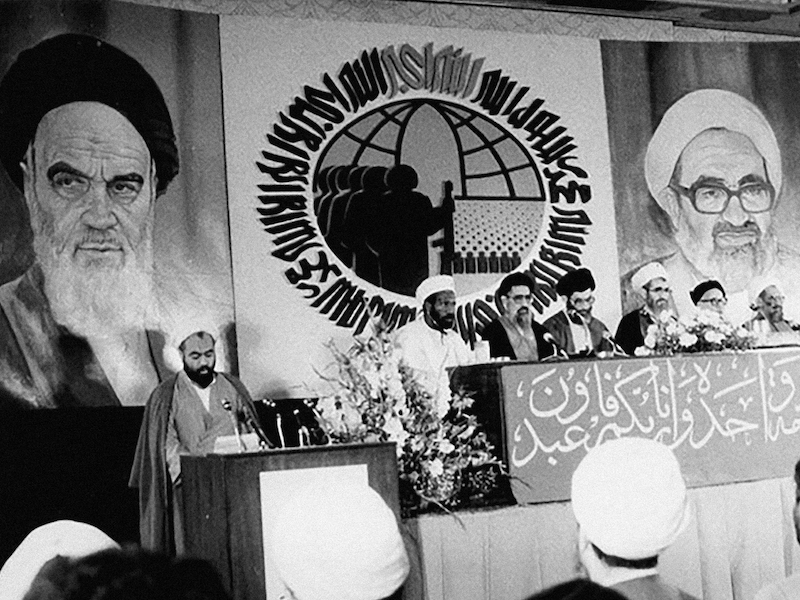 The Islamic Unification Assembly in Tehran, 1984, from a private collection.
The Islamic Unification Assembly in Tehran, 1984, from a private collection.
On the 40th anniversary of the 1979 Iranian Revolution, much has already been written about this watershed moment of Middle Eastern politics. Scholars have explored the features of the new revolutionary Shia Islamist regime that took over, and have looked at the ways in which the new rulers in Tehran inspired and bolstered Shia Islamist groups in the region.
Yet, to what extent and through which mechanisms has the 1979 Iranian Revolution informed the evolution of Sunni Islamism in the Arab world? While a handful of scholarly works mention the general enthusiasm which the coming to power of a revolutionary Islamist government in Tehran initially drew from Islamist movements throughout the region, much of this literature is limited or outdated, and does not consider the revolution’s deeper, more long-term and multifaceted effects, including its impact on Sunni Islamic movements.
Building on previous work on both transnational Islamist networks, and through qualitative interviews, this project conducts an in-depth study of the Iranian Revolution’s ideological, political and social impact on Sunni Islamism.
In doing so, this project aims to contribute to the existing scholarship and to the upcoming public debate about the effects of the Iranian revolution forty years later.
This project is funded by an award from the Henry Luce Foundation.
Project Outputs
Research Team
Dr Toby Matthiesen | Principal Investigator
Toby is Visiting Fellow at the LSE Middle East Centre and a Marie Curie Global Fellow at Ca’ Foscari University and Stanford University.
Dr Raphaël Lefèvre | Principal Investigator
Raphaël is Visiting Fellow at the LSE Middle East Centre and Senior Research Fellow at the Department of Politics and International Relations, Oxford University.
Dr Mohammad Ataie | Researcher
Mohammad is a research fellow at the Crown Center for Middle East Studies, Brandeis University. His research interests include the 1978-79 Iranian revolution, Iran’s foreign policy, Islamic movements, transnational Shi‘a politics, and sectarianism.